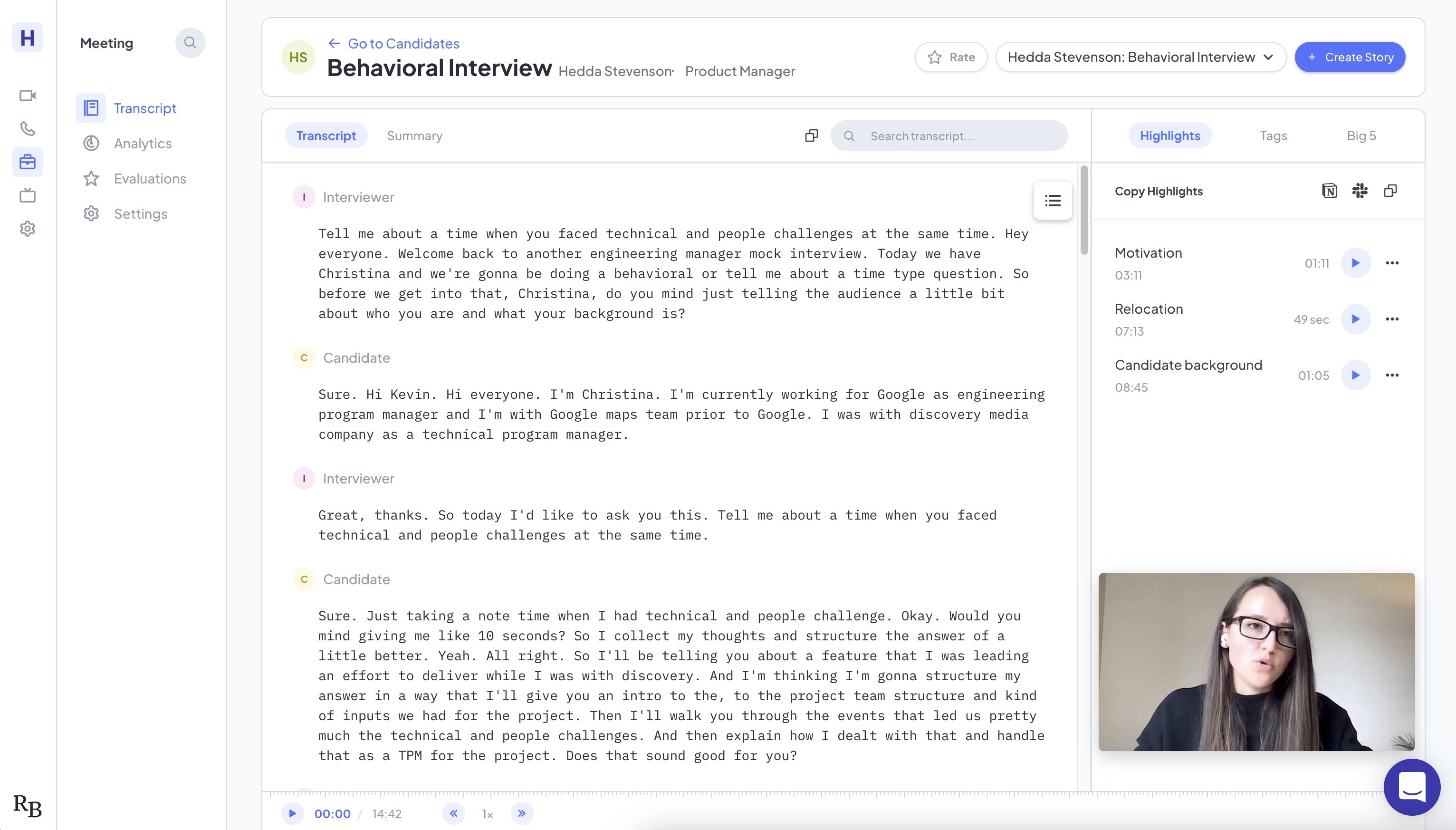What Makes a Good Candidate for a Job?

2023
Today's job market is hectic.
More than half of the American workforce expects to look for new employment over the next year. So even those who love their jobs have a watchful eye out for the bigger, better opportunity.
That means recruiters and hiring managers are flush with potential job seekers. While it's nice to have so many options, how on earth do you find the best candidate for your company?
For starters, it helps to identify what makes great candidates stand out. If you screen for the best, you boost your likelihood of making the right hire, as the wrong hire comes with a slew of unfortunate consequences.
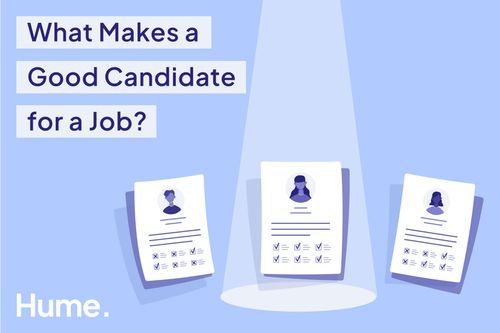
So read on for our primer on what makes a good candidate for a job, and stay tuned for a powerful interviewing platform that empowers hirers to find these standout job seekers during hiring conversations.
What is a "good candidate" anyway?
Good vs. bad can be a murky dichotomy when it comes to preferences. Just like a good TV show or a good wine, a "good" job candidate is subjective, dependent on both the values of your hiring team and unique needs of your company.
That said, according to a Glassdoor survey, nearly 90% of hiring experts consider an informed candidate — someone who's experienced, prepared, knowledgeable, and engaged throughout the application process — to be a job seeker of top-notch quality. So while there's no one-size-fits all descriptor of what makes good candidates, well, good… most of them have a variety of characteristics in common.
8 traits that make good candidates stand out
Searching for candidates with specific personality traits can lead to biased application processes and bad hires. Instead, when looking for top talent, you want to focus on past, present, and future behavior.
Here are the characteristics to keep in mind:
Relevant experience
A good candidate has substantial, demonstrated experience relevant to the demands of your role. These applicants are able to make an immediate impact at your company with minimal training.
Experience is so valuable because of the widening mismatch between the skills employees have and the skills employees need. According to a McKinsey & Company study, 87% of companies either say they have skills gaps now or expect to within the next five years.
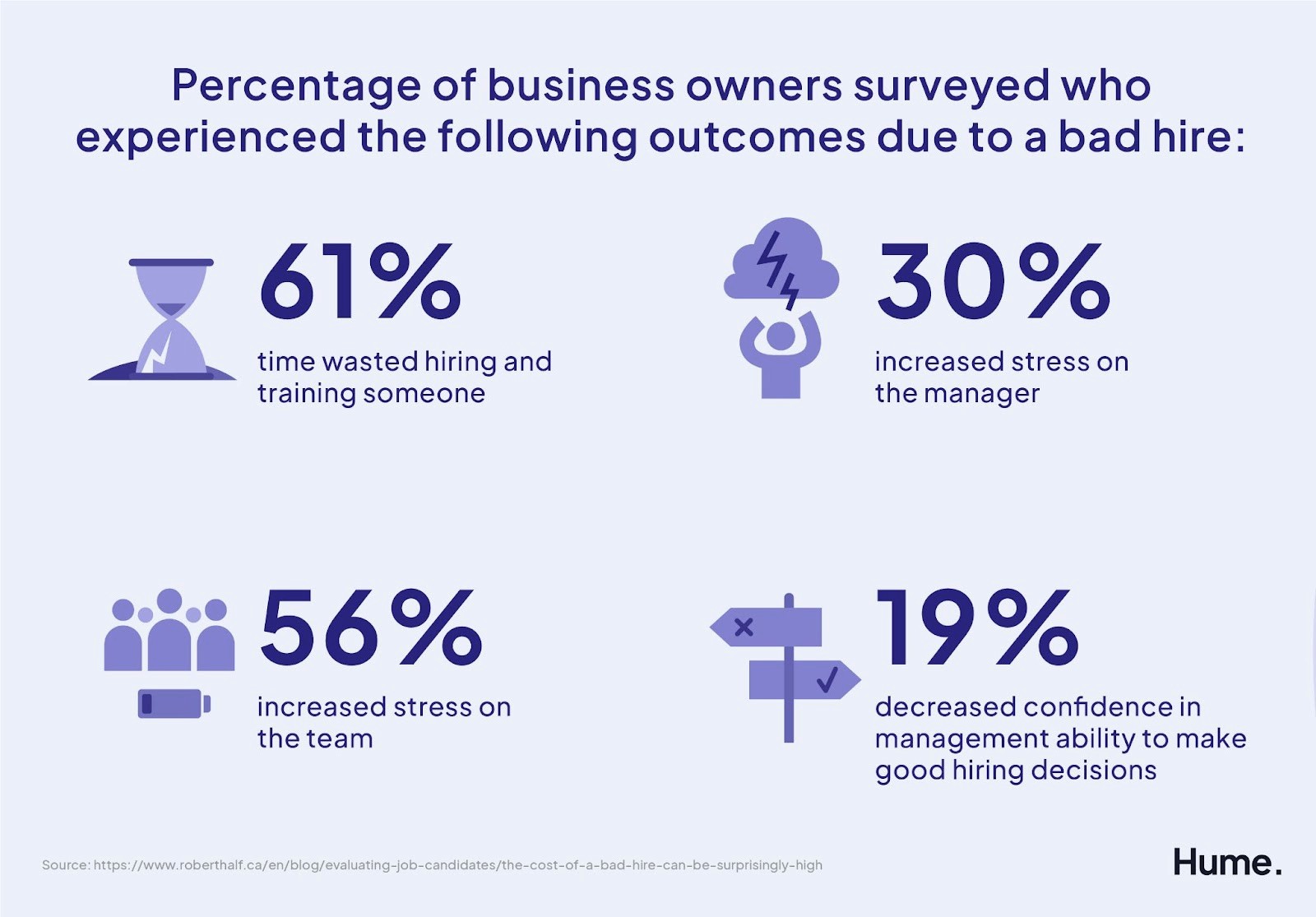
Of course, you always want to think outside-the-box in your hiring process, keeping in mind candidates from unconventional backgrounds and being at least a little flexible in your job requirements. While some job seekers may not have experience directly relevant to your role (or for not as long as you originally hoped), they may have transferable hard skills that can be a value add in the long run after some shorter-term training.
Knowledge of your company and role they're applying for
Stellar candidates research your company and show how much they know about it throughout every stage of the application process. While they don't need to have an encyclopedic knowledge of who you are and what you do, they should do their homework.
For instance, if you solicit a cover letter, a good candidate's submission shows a throughline between the skills they have and the kind of employee you're looking for.
Good candidates can also answer the "why do you want to work here?" interview question with specifics about your company's mission and values. It's clear they've looked at your company website and studied your job posting carefully to see what exactly you're prioritizing. Then, they use the interview to cite examples of how their past experiences at previous jobs make them a perfect fit for the demands of the new position.
Effective communication
Good communication is the bedrock of any productive (and enjoyable!) workplace. Through their written application submissions and verbal responses to interview questions, great candidates demonstrate an ability to relay information clearly, helping companies get more done in less time.
In addition to their communication skills during the application, the ideal candidate shows an ability to interact with more senior and more junior employees. They're also comfortable running meetings, providing updates on projects, interacting with customers, and leading presentations.
Honesty
You'd hope that near every candidate is honest. But that's often not the case. According to a reference checking company, 78% of candidates admitted they either did or would consider embellishing their credentials on an application (which is why it's always helpful to include a test assessment that simulates the job they're gunning for in the application).
Amid a swath of truth-stretchers, the best candidates demonstrate honesty. They're upfront about past shortcomings and can explain how they've learned from them (demonstrating a growth mindset), while admitting when they don't have a certain skill. You can consider employee background checks to screen for this, especially since 43% of hiring managers admitted to making bad hires without running one.
Motivation
Great candidates don't have to check every box. If you encounter a job seeker who is enthusiastic about your employer brand, hungry to learn, and has a strong work ethic, you've found a motivated candidate worth considering.
A good way to screen for motivation is through reference checks, as past co-workers will be able to speak to the candidate's past performance.
Dependability
More than anything, a good candidate is someone you can rely on to get the job done. When it's the 11th hour and you're up against the sharp teeth of a fast-encroaching deadline, which job seekers in your funnel do you want in your corner? Again, reference checks are a helpful way to screen for this trait. And you could also consider soliciting a test assessment — if the candidate does a punctual and thorough job with it, you can likely rely on them for more work down the line.
Keep in mind that being dependable and being communicative go hand in hand. Great candidates won't be perfect employees on the job all the time. But they'll be transparent when they're lagging behind and show an eagerness to get back on track.
Adaptability
Good candidates can acclimate to changing circumstances. That means possessing soft skills, like:
Good communication (as mentioned above)
Interpersonal skills
Problem-solving
Creativity
Teamwork
Organization
If candidates can show an ability to tackle ideas, responsibilities, and expectations that are always in flux, they'd be an asset to your team. During interviews, look out for job seekers who draw from their soft skill sets to meet the demands of a dynamic work environment.
Cultural fit
There's a social component to most jobs, and successful employees will be able to thrive in your company's existing workplace culture. Said culture is vastly different from company to company, even in similar industries, and is molded by what company leaders and employees value, how they interact with one another, and what collective expectations are.
Keep in mind that stellar candidates on paper may not mesh with your existing company culture. Sometimes, that mismatch is surmountable. But other times, you may want to give the edge to someone whose values are more aligned.
Take a superstar salesperson who thrives in a competitive work environment, constantly trying to out-do co-workers. If you've built a culture that's more collaborative and less cutthroat, a separate candidate who fits a more team-oriented profile may be better for what you're building.
How interviews can help you find the best candidates
Finding a great candidate is one of the biggest challenges recruiters face in today's ever-competitive job market. But one of the best tools at your disposal, when done right, is the job interview.
Structured interviews can be a vital bellwether for on-the-job performance. Here's how they can help you find the best job seekers.
Learn more about the candidate
A job seeker's resume and application won't give you everything you need to know about them. Interviews let you fill in the gaps by allowing candidates to contextualize their past work experiences, explain why they're a good fit for a new position, and elaborate on their career goals. A quick line on a resume only tells a small sliver of a story. Interviews let hiring managers figure out what an interviewee's day-to-day responsibilities were.
Evaluate the candidate
Interviews let you assess whether candidates actually have the skills and experience advertised on their resume. If you ask behavioral interview questions — where you prime interviewees to talk about past workplace challenges, how they responded to them, and what the outcome was — you'll be able to envision whether they'll make a quality hire.
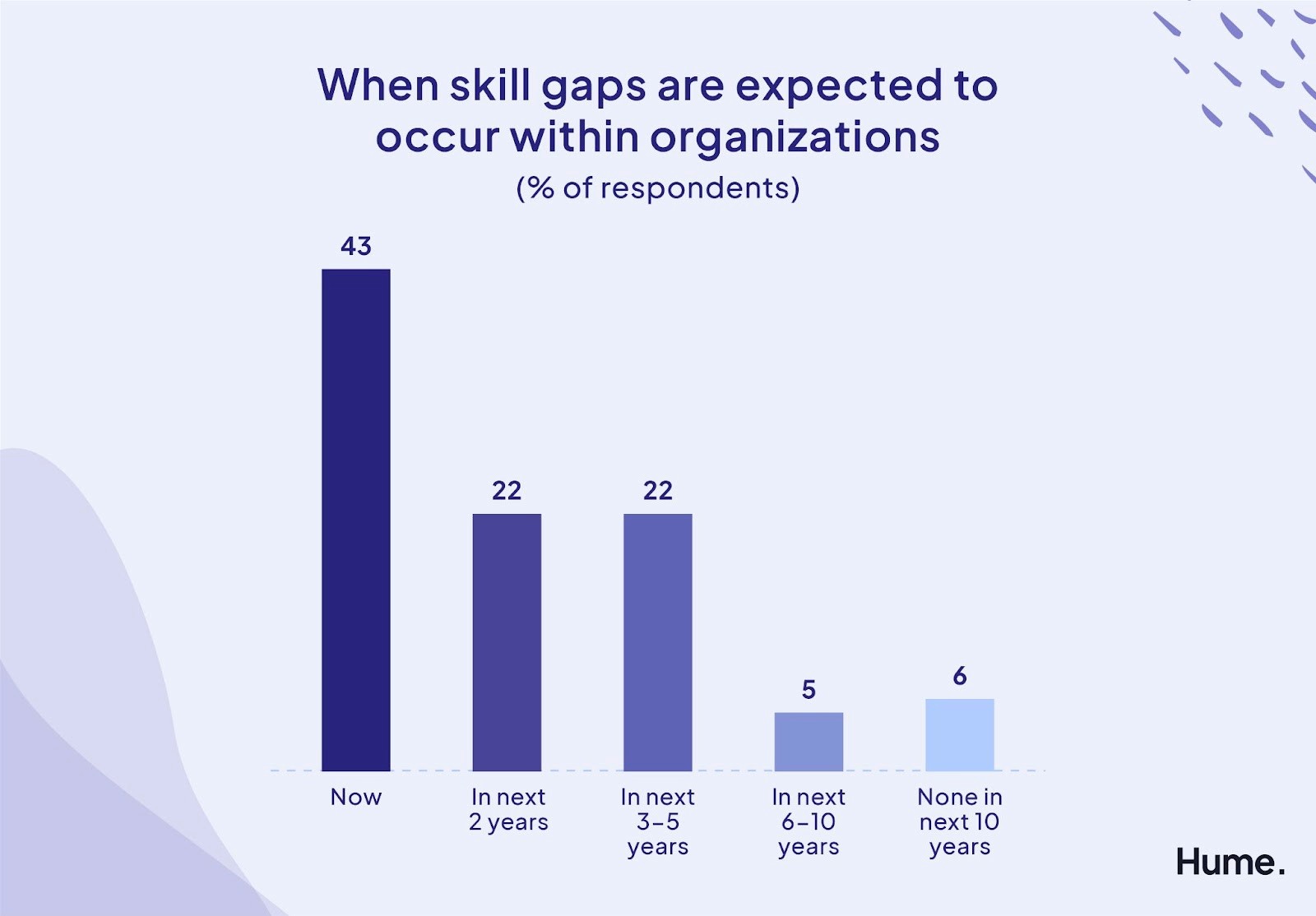
Switch places and let the candidate interview you
Interviews, just like the application process as a whole, are a two-way street. While you're assessing candidates, they're trying to envision whether they see themselves working with you.
If you give job seekers the opportunity to ask you questions, you'll gauge how passionate they are about your position and company. It also does wonders for the candidate experience.
Keep in mind that good candidates will likely be curious about your company. They'll also come to the interview prepared with a slew of questions that can help them decide if they want to work with you, helping you further assess whether they'd make a good hire.
Finding the good, great, and absolute best candidates during interviews
While interviews can help recruiters and hiring managers discover the best candidates, they can also be dangerous.
If your interview process is unstructured — meaning you're asking each candidate different questions depending on their background and whether you "like" them — you run the huge risk of letting bias seep into your decision-making. This can lead to making bad hires, which can cost a fortune and be a drain on productivity.
What's more, while you want to log as much data from the interview as possible to ensure you're finding the best candidates, spending too much time hunched over scribbling notes distracts from the conversation at hand.
A potential fix? Employing artificial intelligence that turns interviews into a treasure trove of insights that help you find the best possible candidates for your position.
That's exactly what we made at Hume, a talent intelligence tool that records, transcribes, and summarizes interview conversations. The platform lets interviewers focus directly on the candidates instead of on taking notes.
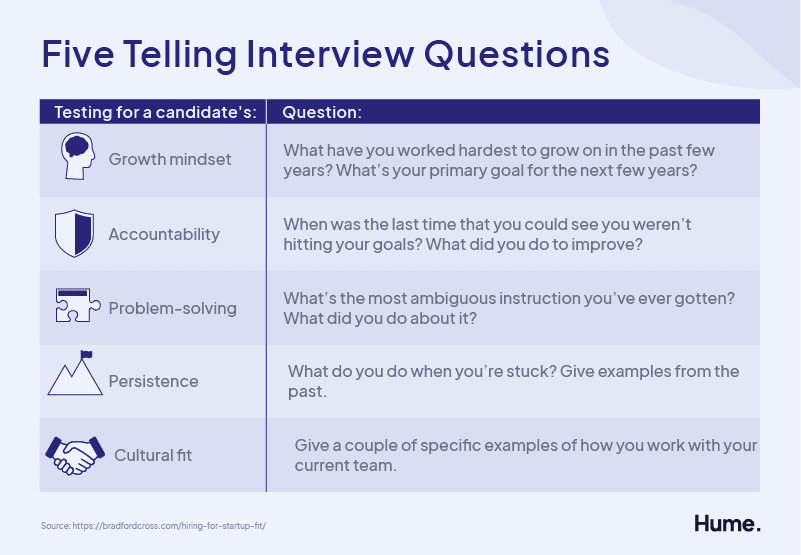
Hiring team members can rest easy knowing that AI extracts all questions from the conversation, allowing decision-makers to navigate toward the most significant parts of the transcript while comparing different job seekers' answers against each other.
Hume also lets you "highlight" these vital interview moments, which creates video snippets that you can share across your hiring team to let more people weigh in (increasing your likelihood of finding the best candidate). You can also "tag" sections of the transcript that speak to a job seeker's core competencies, soft skills, behavioral traits, or anything else you want to annotate and revisit.
Within your hiring panel, you can even create coaching libraries and playlists that equip interviewers with the tools to ask the right questions, which separates the standout candidates from the pack.
Hume empowers you to make the right hiring decision — one based on logic instead of gut feelings — all while bolstering candidate experience and reducing time to hire. Not only will you have a better sense of who your best candidates are. You'll have a leg up on winning them over.
But don't just take our word for it. Sign up for Hume's waitlist for early access to the platform. And follow Hume on LinkedIn to learn more about finding good candidates and best hiring practices.
